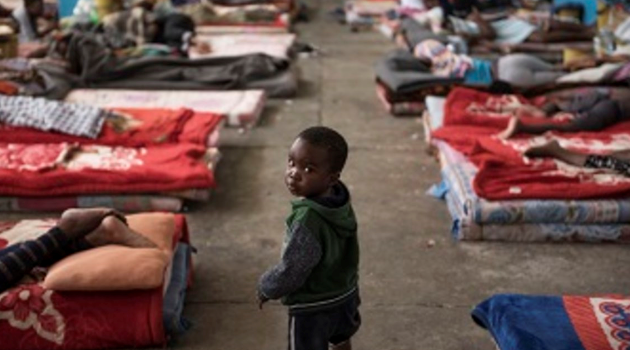36,000 migrant children are in need of assistance in Libya, figures revealed today on International Migrants Day show. Out of an estimated 400,000 migrants, nine per cent are children and, shockingly, more than 14,000 children are also unaccompanied.
This year nearly 15,000 unaccompanied children have reached Italy by sea travelling across the perilous Central Mediterranean route from Libya, their journeys typically facilitated by smugglers and traffickers. UNICEF estimates that more than 400 children have died trying to make this trip since the start of the year, while many more have suffered abuse, exploitation, enslavement and detention.
UNICEF and IOM have joined forces in the action plan to increase support to migrant children in Libya, focusing on child protection, education, water, sanitation and health, this collaboration will ensure that child rights are put at the heart of all assistance in Libya.
Othman Belbeisi, IOM Libya Chief of Mission said, “The aim is that throughout this closer collaboration we will be able to reach and protect more children on the move. Children are among the most vulnerable and many are in need of protection and support.”
In 2018, IOM aims to assist 30,000 migrants in voluntary returns to their country of origin, among them many migrant children. The two UN agencies will make sure that the child’s best interests are prioritised pre-departure, throughout the journey and that follow-up assistance is provided when they arrive back home.
“Migrant children are some of the most vulnerable people in Libya and today’s agreement with IOM is essential in our work to reach them and uphold their rights. We will be able to collectively work to ensure that all children, no matter their status, are able to gain an education, be protected and receive the basic services they deserve,” said Abdel-Rahman Ghandour, UNICEF Special Representative in Libya.
UNICEF in coordination with IOM worked together to facilitate national vaccination campaigns to reach all vulnerable children including migrant and refugees. In addition, within the framework of this collaboration, the two UN agencies will scale up their efforts to provide psychosocial support for migrant children, family tracing and reunification services for unaccompanied and separated children and access to basic services in line with the global agreement signed between the two organisations in 2006.
(Source: UNSMIL)





